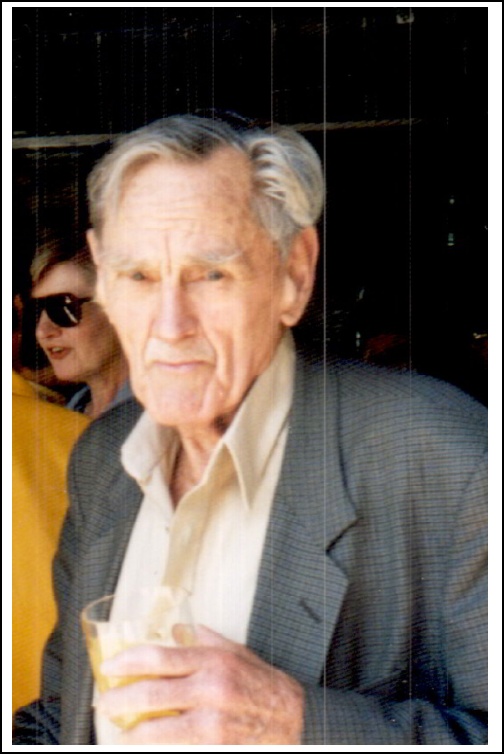Cedric was a son of the establishment. His father was one of the early solicitors in Melbourne, and Cedric started his working life at his father’s firm, later setting up his own law practice.
Like many of his generation, the Great Depression of the 1930s left an indelible mark on Cedric. He would walk with his father to work in the city through Melbourne’s Royal Botanical Gardens in which homeless unemployed men ‘slept rough’. It caused him to begin to question the kind of society which could produce the huge disparity of wealth such as between his own privileged circumstances and those of the unemployed.
Cedric fought in the Pacific in the Second World War and his contact with Communists in the armed forces further developed his radical ideas.
He joined the Communist Party of Australia (CPA) and became close to the great E. F. (Ted) Hill, Victorian Secretary of the CPA and brilliant barrister.
In the immediate post World War II period, the Soviet Red Army victories over Nazi Germany, the expectations of soldiers returning to civilian life and the advance of anticolonial struggles around the world led to significant growth of the Communist Party and the progressive movement generally around the developed world, including in Australia.
There was a wave of militant working class strikes and other struggles and substantial progressive reforms were won.
In the late 1940s, the most reactionary section of the ruling class launched a worldwide counter-offensive, graphically heralded by Churchill’s infamous “Iron Curtain” speech in Fulton, Missouri, in 1946. McCarthyism – an all-round assault on democratic rights, the working class and unions under the pretext of attacking communism – was launched. Its Australian champion was reactionary Prime Minister Menzies. The high points of McCarthyism in Australia were the law enacted by the Menzies government to ban the Communist Party, which was declared unconstitutional by the High Court; the subsequent referendum to try to give the federal government the constitutional power to pass the law; and the Petrov Royal Commission which operated here like the un-American Activities Committee in the US, chaired by the ultra-reactionary Senator McCarthy.
Fighter for the people
Cedric Ralph was an important figure in this epic and desperate battle in defence of the limited but precious democratic rights which the Australian people had won within capitalism. He was part of the legal team which represented the Communist Party and various unions in the High Court challenge to the Communist Party Dissolution Act, and he was the solicitor for the Communist Party in the Petrov Royal Commission. In both of these, and in other cases in that period, he worked closely with Ted Hill, forming a close bond.
Cedric at the same time was active in the Communist Party itself and in the broad anti-McCarthyite movement led by the party, which was the real force which led to the High Court victory (along with divisions in the ruling class over how best to attack the working class movement). It saw the “No” vote win in the referendum which discredited and isolated the Petrov Royal Commission.
In subsequent years Cedric was involved in fighting many other civil liberties cases, including for doctors prepared to defy the reactionary law and medical establishment to carry out abortions for women in the 1960s, and defending activists in the struggle against the Vietnam War.
Marxist - Leninist
Cedric was part of the group of Communists led by Ted Hill who left or were expelled from the CPA in the early 1960s and reconstituted the party as the Communist Party of Australia (Marxist-Leninist) in 1964, ushering in a period of re-examination and rectification of Communist Party practice in Australia and a resurgence of revolutionary ideology, politics and organisation against the inroads capitalist ideology, politics and organisation had made into the working class movement.
After his retirement as a lawyer in the late 1970s, Cedric moved to a tiny hamlet in the hills of eastern Victoria. There he became very involved in and revered by the local community and its struggles, especially over environmental issues, as well as regularly writing for Vanguard. Age finally caught up with Cedric over the last couple of years, forcing him to move back to Melbourne.
Cedric Ralph maintained his revolutionary outlook over the decades. He was devoted to Marxism and the Communist movement, but he did not try to force his ideas down the throats of others. He had a deep love of the people, especially young people. He inspired wherever he went. He combined legal expertise and political and tactical shrewdness with service of the working class. He was fearless in the face of oppression and reaction, and forthright in expressing his views within the movement.
His example will continue to inspire down the years.
.................................................................................

